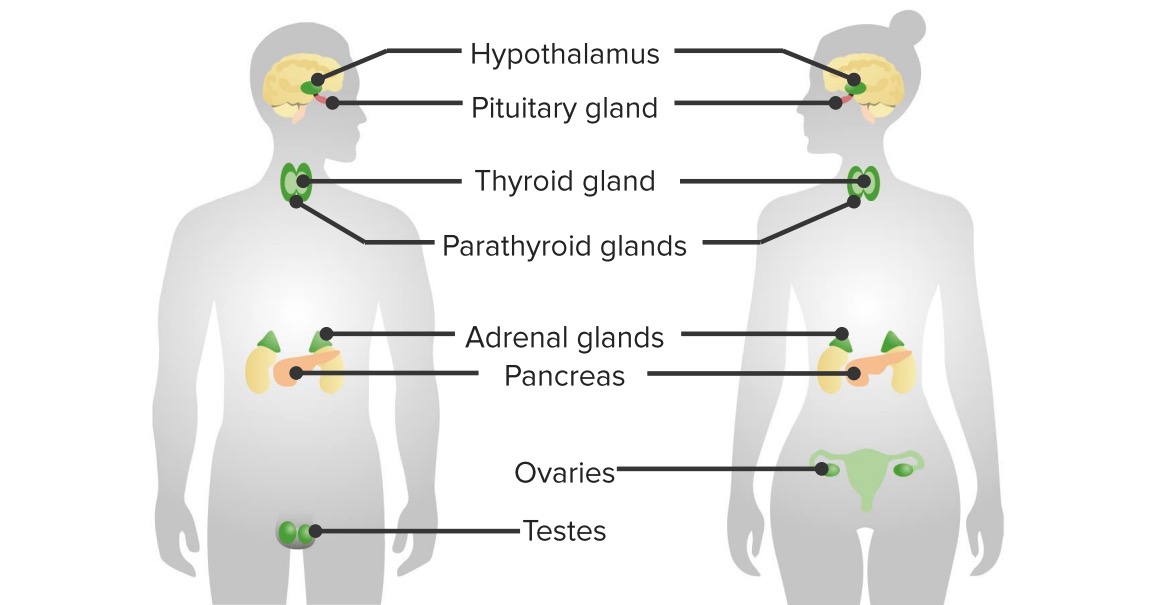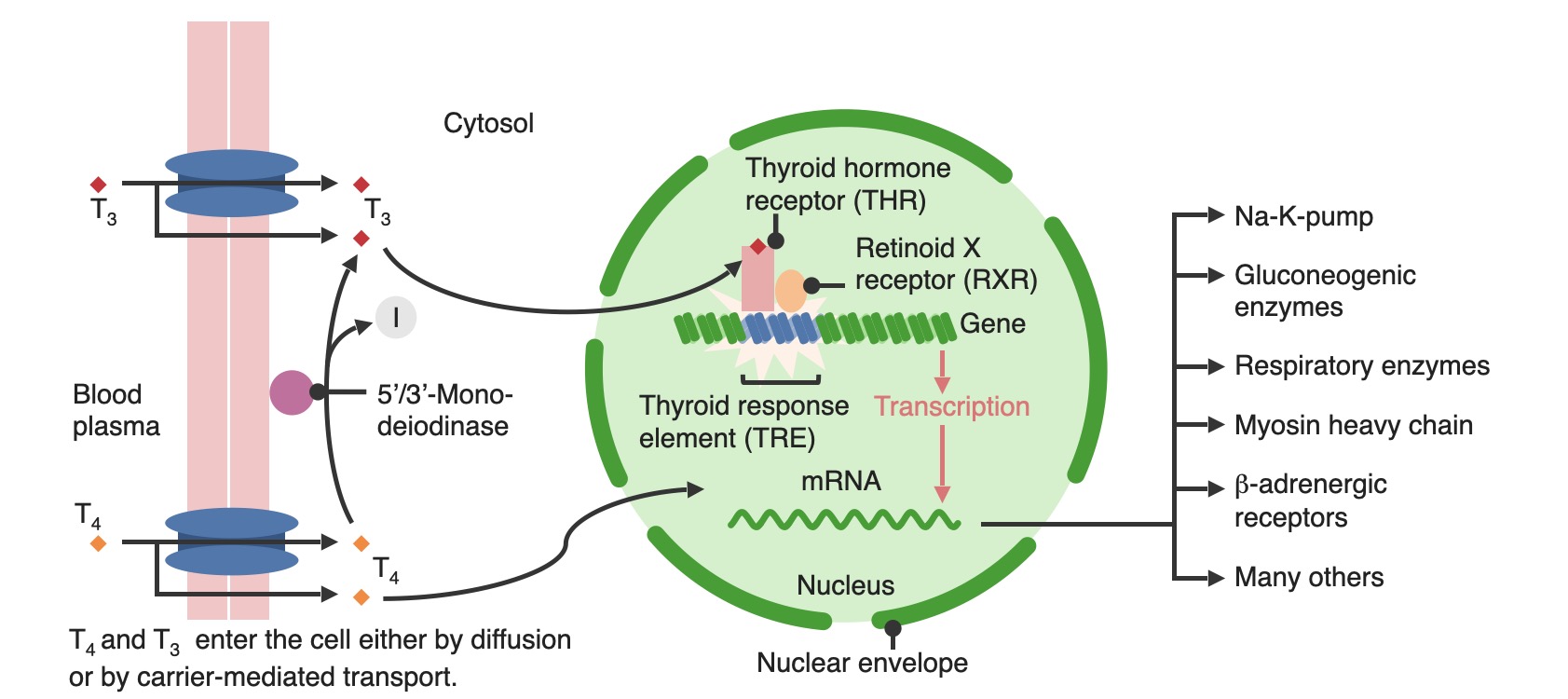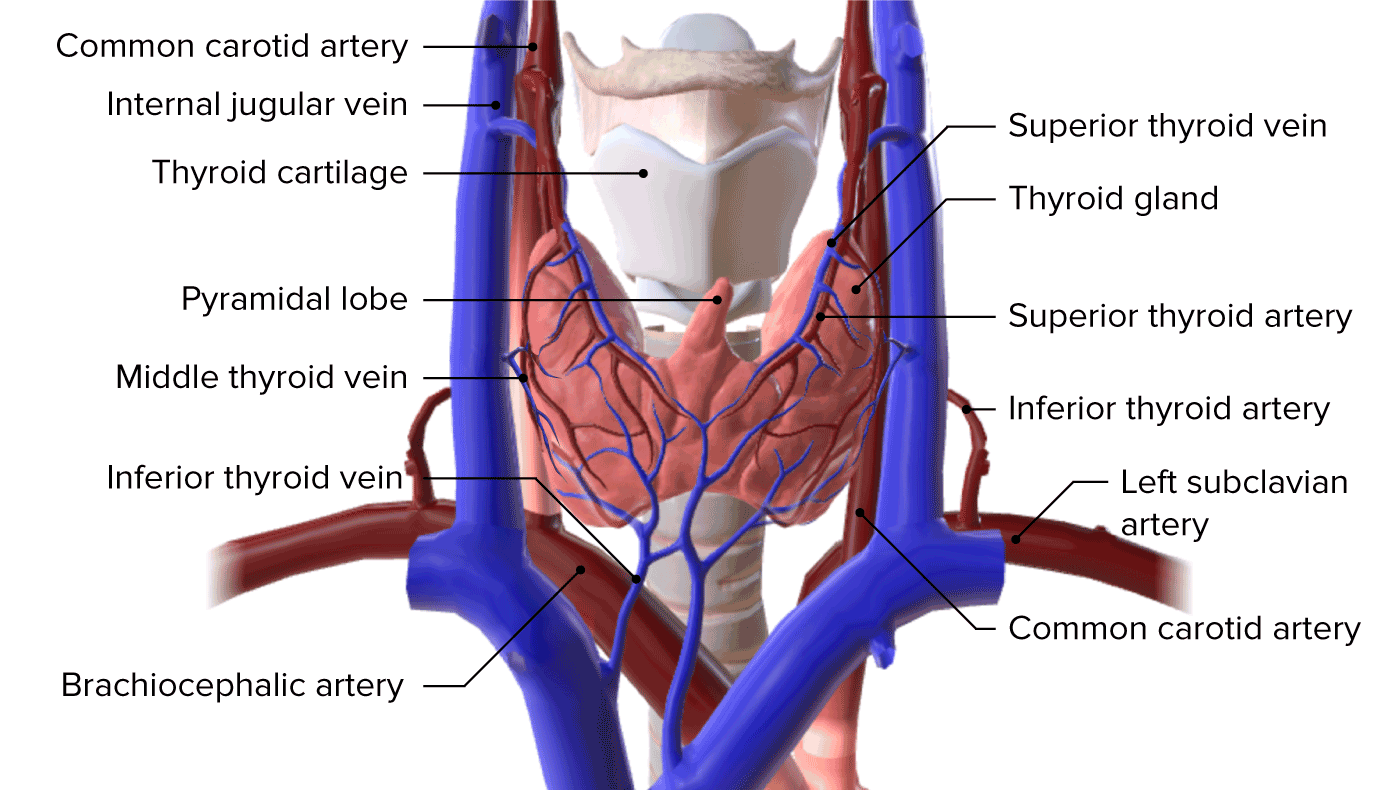Playlist
Show Playlist
Hide Playlist
Thyroid Hormones: Symptomatology Associated
-
Slides Thyroid Endocrine System.pdf
-
Download Lecture Overview
00:00 So what are some of the problems associated with thyroid hormones. 00:07 If you have too much or too little thyroid hormones. 00:11 Well one that the first things to think about is all those myriad of functions that occur with increase in thyroid hormones. 00:20 A lot of those involve things like the sodium-potassium-ATPase enzymes associated with metabolism. 00:28 So you can imagine if you have two much thyroid hormone around. 00:33 Your basic metabolic rate is high. 00:37 And typically these individuals lose weight because they are hyperthyroid. 00:43 The opposite is also true. 00:46 If a person is hypothyroid, their basal metabolism rate is low. 00:51 And they often times gain weight. 00:54 Because they don't have the up regulation of all these enzymes associated with metabolism. 01:00 There are also thermo regulatory issues associated with both hyper and hypo thyroidism. 01:07 If a person has hyperthyroidism, their BMR is high. 01:13 And therefore they are producing lot of heat with that extra metabolism. 01:18 So they are very warm and they need to dissipate that heat. 01:22 The opposite is true if you have a low BMR with hypothyroidism, often times that person is cold. 01:31 Because they aren't producing enough metabolic rate and that is what's driving part of that process. 01:38 Growth can also be effected by thyroid hormones. 01:42 If you have a lack of thyroid hormones, some of your epithelial plates do not fuse well. 01:50 And you can have stunted growth. 01:52 You could also have stunted mental development associated with the lack of thyroid hormone. 01:59 A couple of very classic symptoms associated with thyroid hormones I'll show you next. 02:06 Because these are ones that show up on board exams all the time. 02:10 The first is a Goiter. 02:13 A goiter is a abnormally large thyroid gland. 02:18 So this is where the thyroid gland is in the neck. 02:21 Here though it's much larger than you would expect it to be. 02:26 If you have a disorder in which there is high amounts of thyroid stimulating hormone, TSH, that stimulates the growth of the thyroid gland. 02:38 And you can see it can become very large. 02:41 You can have goiters in both hyper and hypo thyroidism. 02:47 But it's often times associated with times in which you have very high thyroid stimulating hormone. 02:55 Another classic symptom that's associated with thyroid hormone abnormalities is an increase in a growth of connective tissue. 03:07 Specially the basal lamina. 03:09 This can show up as a place where if you have high petrify of this basal lamina. 03:16 It can cause things like your eyes to extrude out a little bit. 03:20 And create things like edema. 03:23 So this particular disorder will present sometimes in this way. 03:28 So both the goiter and having these eye protrusions are very classic symptoms of having high thyroid hormones or being hyperthyroid.
About the Lecture
The lecture Thyroid Hormones: Symptomatology Associated by Thad Wilson, PhD is from the course Endocrine Physiology.
Included Quiz Questions
A goiter is...?
- ...an abnormally enlarged thyroid gland.
- ...an abnormally enlarged thyroid gland due to increased TSH.
- ...an abnormally enlarged thyroid gland due to neoplastic growth.
- ...an abnormally enlarged thyroid gland due to increased T3 and T4.
Which of the following is seen clinically in an individual suffering from hypothyroidism?
- Cold sensitivity
- Tachycardia
- Weight loss
- Increased temperature
- Exophthalmos
Which of the following is a result of low thyroid hormone levels during growth?
- Poor fusion of epiphyseal plates
- Harder bones
- Brittle bones
- Excessive width to length ratio
- Poor calcium deposition pattern
Customer reviews
5,0 of 5 stars
| 5 Stars |
|
5 |
| 4 Stars |
|
0 |
| 3 Stars |
|
0 |
| 2 Stars |
|
0 |
| 1 Star |
|
0 |






